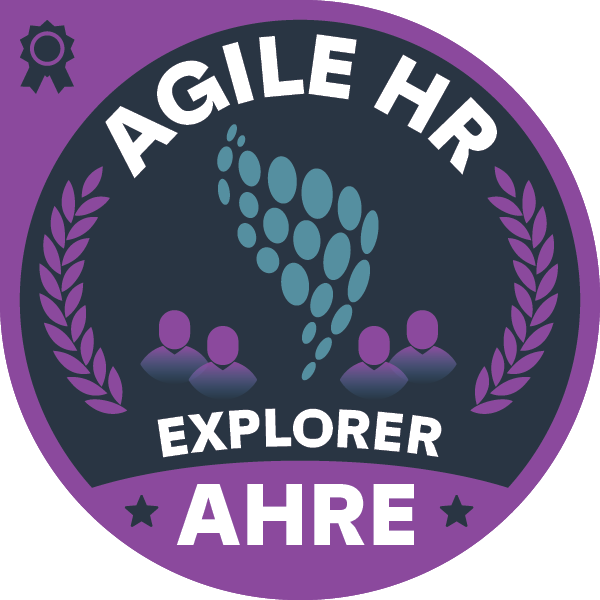In today’s fast-paced business world, staying agile is essential for companies to remain competitive and responsive. Agile methodologies emphasize continuous iteration and adaptation, enabling teams to react swiftly to changing needs and deliver value more effectively. But what if we could take agility a step further by integrating Artificial Intelligence (AI) into Agile workflows?
This blog will explore how AI can be seamlessly incorporated into your Agile processes to enhance efficiency, improve accuracy, and drive better results for your team.
How Can AI Enhance Agile Workflows?
AI has the potential to revolutionize Agile practices in several key areas. Let’s dive into some of the ways AI can provide a significant boost to your Agile methodology:
1. Planning & Prioritization
AI tools can analyze historical project data and trends, helping teams predict effort estimates, identify potential risks, and suggest optimal task prioritization for upcoming sprints. By considering a wide range of factors, including past performance and user preferences, AI can help teams focus on what matters most and tackle high-priority items first.
2. Automated Testing
Automating repetitive testing tasks is a game-changer for Agile teams. AI-powered testing tools can perform routine tests, such as regression or load testing, without human intervention, freeing up your team to focus on more complex and creative testing scenarios. This not only saves time but also enhances the quality of software by running tests more frequently and consistently.
3. Bug Detection & Resolution
AI can detect bugs in the code early in the development process. By analyzing patterns in code changes, AI can flag potential issues and suggest fixes before they become critical problems. This proactive approach to bug detection ensures faster resolution and minimizes costly regressions.
4. Performance Monitoring & Reporting
AI-powered tools can monitor team performance, identify bottlenecks, and generate real-time reports. This continuous tracking allows project managers to stay on top of progress and quickly address any issues that might arise, ensuring your team remains on track to meet deadlines and deliverables.
5. Improved Communication & Collaboration
Communication is a cornerstone of successful Agile teams. AI chatbots can automate routine tasks such as answering frequently asked questions, sending progress updates, and even facilitating cross-team communication. By handling repetitive inquiries, AI allows team members to focus on more meaningful interactions and collaboration.
Real-World Example: AI in Action
Imagine a development team working on a new e-commerce platform using Agile methodology with sprints. The team uses an AI-powered tool that analyzes customer buying patterns and browsing behavior. The tool prioritizes features and functionalities for the next sprint based on this data, ensuring that the team is working on the most impactful features that will directly benefit the users. With AI-driven insights, the team can focus their efforts on what matters most, delivering a more valuable product in less time.
Ready to take your Agile expertise to the next level?
Enroll in our ICP Certification Training and gain the skills to lead high-performing teams with confidence! Don't miss out on this opportunity to learn practical Agile techniques and certifications that can drive success in your career. Sign up today and unlock your potential with expert-led training!
Limited Seats!Benefits of Leveraging AI in Agile
- 1Increased Efficiency: AI automates routine tasks, allowing human resources to focus on high-value activities such as innovation and problem-solving. This leads to faster development cycles and more efficient use of time and resources.
- 2Improved Accuracy: AI can process large datasets and identify patterns and trends that may not be immediately apparent to humans. This leads to better-informed decision-making, more accurate predictions, and smarter prioritization.
- 3Enhanced Quality: Automated testing and early bug detection result in fewer defects and a higher quality product. With AI handling repetitive tasks, teams can concentrate on refining features, improving user experience, and delivering a better final product.
- 4Faster Time to Market: By automating repetitive tasks and streamlining workflows, teams can work more efficiently, reducing the time it takes to develop and deploy software. This allows businesses to release products faster and stay ahead of the competition
- 5Boosted Team Morale: AI removes the burden of mundane tasks, enabling team members to focus on creative problem-solving and collaboration. This can lead to higher engagement, improved job satisfaction, and a more motivated workforce.
Challenges & Considerations
While AI offers tremendous potential, integrating AI into Agile workflows does come with some challenges. Here are a few factors to consider:
1. Cost
The initial investment required for AI tools can be significant. However, the long-term benefits—such as reduced labor costs, faster development cycles, and improved product quality—can justify the expense.
2. Data Security
As with any technology, security is a priority. AI tools must comply with data privacy regulations to ensure sensitive information is handled safely. Ensuring proper data protection will be crucial when adopting AI in Agile practices.
3. Change Management
Transitioning to AI-powered workflows may require training and cultural adjustments within your team. It’s important to ensure that everyone is on board with the change and understands how AI can enhance, not replace, their work.
The Future of Agile with AI
AI integration into Agile is still in its early stages, but its potential is enormous. As AI continues to evolve, we can expect even more advanced tools that will further transform how Agile teams operate. Imagine an AI system that automatically adjusts sprint priorities based on real-time user feedback or an AI-driven project management tool that can predict potential delays before they happen.
The future of Agile lies in a harmonious blend of human ingenuity and AI efficiency. By embracing AI, Agile teams can unlock new levels of productivity, innovation, and collaboration.
Conclusion
AI is not here to replace Agile teams—it’s here to empower them. By automating tedious tasks, providing data-driven insights, and enhancing collaboration, AI can help Agile teams work smarter, not harder. With the right tools and strategies in place, AI can become a valuable ally in your Agile journey, enabling your team to deliver exceptional results faster and more efficiently.
Thank you for joining this exploration of how AI can enhance Agile workflows. As AI technology continues to evolve, there are limitless possibilities for Agile teams to grow, innovate, and thrive.




























































































